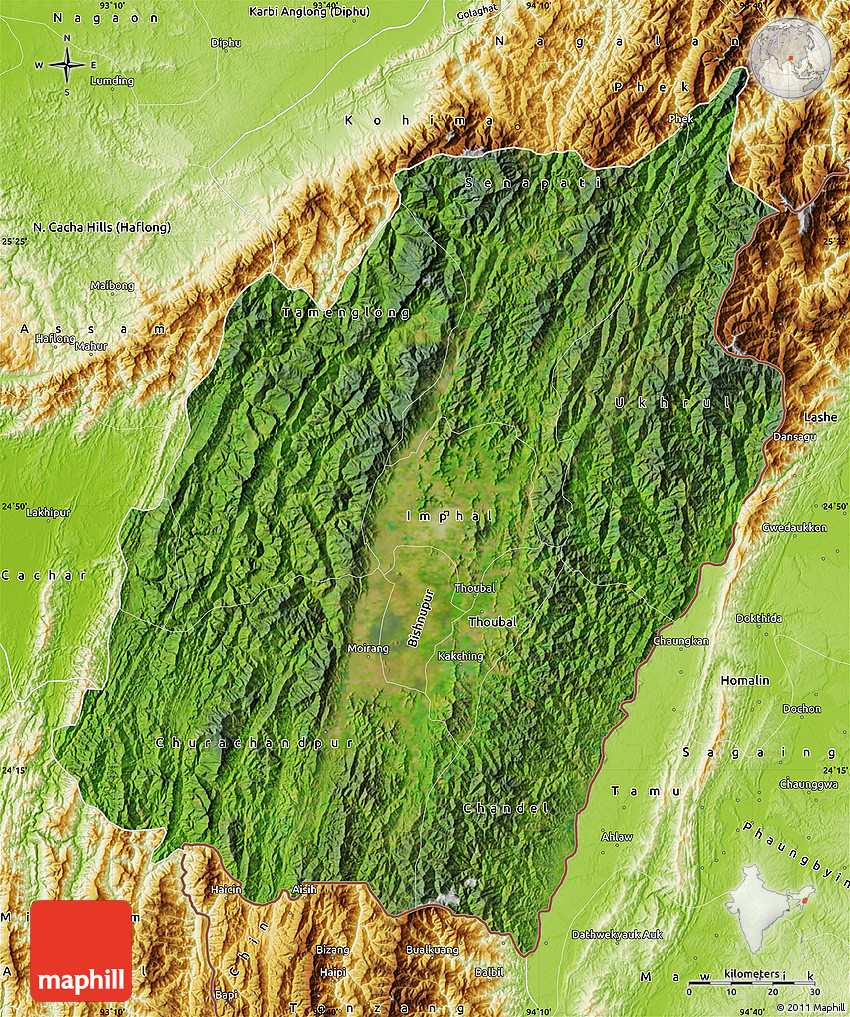Manipur Violence and Crisis
Reasons and Solutions
Religious groups in Manipur: Where everything started...
Hinduism: 41.39% population of Manipur
Christianity: 41.29% population of Manipur
Mostly Hindu community consists of Meitei people (Manipuris), are concentrated in the Imphal Valley and other plain districts of Manipur. Other communities live in the hill station of the state.
Hence, the Meitei community demanded Scheduled Tribe tag for claiming such benefits.
Persistent inter-community conflict, left unresolved for an extended period, has been intensified by the apparent lack of determination at both the state and central levels to address these complex issues. One of the core demands adding fuel to the conflict is the Meitei community's plea for a Scheduled Tribe classification, which has been met with resistance from other groups. This schism, notably between the Meiteis and tribal factions like the Kukis, has deepened over recent years due to various contentious matters.
The prevalent resentment, which has been simmering beneath the surface for a considerable duration, is rooted in multifaceted factors. Historical grievances, cultural disparities, and uneven resource distribution contribute to the underlying rage among these communities. Unless a concerted effort is made to address these deep-seated issues and alleviate the disparities, the potential for continued strife remains distressingly high.
Notices against “Illegal settlements” and its residents are “encroachers”:
Tensions have escalated further due to discontentment stemming from the state government's declarations branding 38 villages within the Churachandpur-Khoupum Protected Forest area as "illegal settlements." This provocative characterization, labeling the residents as "encroachers," has ignited an eviction campaign that resulted in violent clashes. However, the roots of this brewing animosity go beyond these immediate triggers.
Conclusion
In conclusion, the persisting inter-community discord, exacerbated by political inertia at various levels of governance, finds its roots in a spectrum of reasons. The call for Scheduled Tribe status by the Meitei community, the growing divide with tribal counterparts, objections to governmental proclamations branding settlements as unlawful, and a longstanding undercurrent of anger all intertwine to create a complex tapestry of tensions that urgently require strategic intervention and resolution.





![[FREE PDF] Situation Reaction Test | Psych tests at SSB | 150 SRT Problems](https://blogger.googleusercontent.com/img/b/R29vZ2xl/AVvXsEjVlBQb9_dfKlftvESKgmwROM9daafVjAOJPs1tcMbNdUXoWZz3X9U69okZxsWEu0GoNg02dCTfKvQTszYBUP2WUK8_IFCvgny62AYbxz_Uuc_aLs6mr-_9YdxJaFQJAE0agw_SUlhvRkzMEZGcf0eYghvbIOpxUxjfibBa91tkBHmsWtBqx6Mlx8pB_wY/w72-h72-p-k-no-nu/image.png)
![[FREE PDF] OIR Practice Set - 1 | Officer Intelligence Rating Test](https://blogger.googleusercontent.com/img/b/R29vZ2xl/AVvXsEjLB7ZjV3JgCqyZhJvzDEtDG_1XYECy4Ge17ReprORHqdAqijGsc-oLLfTxjaGljVhVcACM6-aIJtkMCONnHQFvsJp9-ZmIU8FLeZ-9d0X6CwimwY2F33B2BvrYZ3-OoLKmWjG5wPjUqEFi2clNFM8RQMss0aJ2iFN8KJMHcutuVSuNKO_JonjXyRDRttM/w72-h72-p-k-no-nu/Black%20and%20Yellow%20Modern%20Black%20Friday%20Sale%20Mobile%20Banner%20Ad%20(4).png)




![[FREE PDF] Situation Reaction Test | Psych tests at SSB | 150 SRT Problems](https://blogger.googleusercontent.com/img/b/R29vZ2xl/AVvXsEjVlBQb9_dfKlftvESKgmwROM9daafVjAOJPs1tcMbNdUXoWZz3X9U69okZxsWEu0GoNg02dCTfKvQTszYBUP2WUK8_IFCvgny62AYbxz_Uuc_aLs6mr-_9YdxJaFQJAE0agw_SUlhvRkzMEZGcf0eYghvbIOpxUxjfibBa91tkBHmsWtBqx6Mlx8pB_wY/w100/image.png)
![[FREE PDF] OIR Practice Set - 1 | Officer Intelligence Rating Test](https://blogger.googleusercontent.com/img/b/R29vZ2xl/AVvXsEjLB7ZjV3JgCqyZhJvzDEtDG_1XYECy4Ge17ReprORHqdAqijGsc-oLLfTxjaGljVhVcACM6-aIJtkMCONnHQFvsJp9-ZmIU8FLeZ-9d0X6CwimwY2F33B2BvrYZ3-OoLKmWjG5wPjUqEFi2clNFM8RQMss0aJ2iFN8KJMHcutuVSuNKO_JonjXyRDRttM/w100/Black%20and%20Yellow%20Modern%20Black%20Friday%20Sale%20Mobile%20Banner%20Ad%20(4).png)




0 Comments